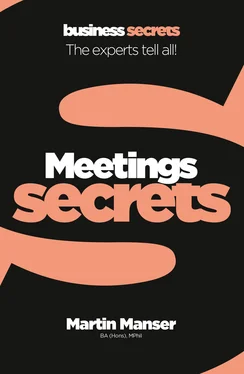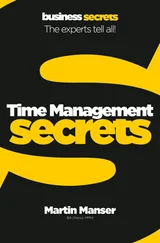Martin Manser - Meetings
Здесь есть возможность читать онлайн «Martin Manser - Meetings» — ознакомительный отрывок электронной книги совершенно бесплатно, а после прочтения отрывка купить полную версию. В некоторых случаях можно слушать аудио, скачать через торрент в формате fb2 и присутствует краткое содержание. Жанр: unrecognised, на английском языке. Описание произведения, (предисловие) а так же отзывы посетителей доступны на портале библиотеки ЛибКат.
- Название:Meetings
- Автор:
- Жанр:
- Год:неизвестен
- ISBN:нет данных
- Рейтинг книги:4 / 5. Голосов: 1
-
Избранное:Добавить в избранное
- Отзывы:
-
Ваша оценка:
- 80
- 1
- 2
- 3
- 4
- 5
Meetings: краткое содержание, описание и аннотация
Предлагаем к чтению аннотацию, описание, краткое содержание или предисловие (зависит от того, что написал сам автор книги «Meetings»). Если вы не нашли необходимую информацию о книге — напишите в комментариях, мы постараемся отыскать её.
Meetings — читать онлайн ознакомительный отрывок
Ниже представлен текст книги, разбитый по страницам. Система сохранения места последней прочитанной страницы, позволяет с удобством читать онлайн бесплатно книгу «Meetings», без необходимости каждый раз заново искать на чём Вы остановились. Поставьте закладку, и сможете в любой момент перейти на страницу, на которой закончили чтение.
Интервал:
Закладка:
Asking ‘What is the purpose of this meeting?’ is probably the most important question that you can ask as you plan, prepare for or go into a meeting: what is its aim? What exactly are you trying to achieve? One thing is certain: if you don’t know the purpose of your meeting before you begin it, it’s unlikely that you’ll achieve a purpose while the meeting is taking place and before it ends. Further, how will you know if the meeting had been successful if you don’t know what you’re aiming to achieve?
Here are some possible aims of meetings:
▪ to give information, e.g. to inform colleagues of progress or introduce new products or services
▪ to review progress on a project
▪ to negotiate details of a contract
one minute wonder Think of the next meeting you are to attend. What is its purpose?
▪ to negotiate arrangements, e.g. financial or in politics
▪ to discuss a proposal for a future project
▪ to assess and evaluate different strategies or ways of dealing with a problem or a dispute
▪ to review and approve a certain course of action or a set of accounts
▪ to come to a decision on a proposal and agree what to do next
▪ to choose new members of a committee, board, leadership group, etc.
▪ to listen to or give a talk or presentation on a subject
▪ to develop a sense of team identity and encourage more effective teamwork
Keep the aims of your meeting simple and clear.
1.2
What can go wrong in meetings?
If we look at some of the things that can go wrong in a meeting, then we can learn from mistakes.
▪ inappropriate time of meeting, e.g. just before the end of the day
▪ the meeting is called at short notice
▪ poor or no agenda
▪ unclear purpose of meeting
▪ spending time during the meeting reading background reports
▪ not having enough copies of papers or reports for all participants
▪ participants arrive late
▪ wrong people present
▪ people who have authority to make decisions are not present
▪ unclear roles
▪ noisy venue; room too hot or too cold
▪ seating unhelpful for discussion
▪ some people talk too much; others talk too little
▪ participants are not prepared
▪ no follow-up from previous meeting
▪ participants do not reach conclusions or decisions
▪ participants do not decide actions or who is responsible for them
▪ poor or no chair
▪ discussion is in too much detail
▪ meeting goes on too long: no breaks
▪ new people present but no one introduces them
▪ participants use jargon that is not known to all participants
▪ participants do not really listen to one another
▪ participants talk to each other during the meeting
▪ distractions during the meeting, e.g. mobile phones ringing
▪ participants not being open to change their minds
▪ participants misinterpret others’ comments
▪ disagreement or conflict becomes personal
▪ too many people are talking at the same time
▪ technical issues
▪ decisions poorly communicated after the meeting
Most of these can be solved by:
▪ better chairing of the meeting
▪ better preparation before the meeting.
case study Larry was called in to solve the problems at the company. He was present at a meeting of the Senior Management Team (SMT). He asked them for the agenda of the meeting and was told there wasn’t one. He asked them for the actions decided at the previous meeting and was told that no minutes had been taken. It was hardly surprising that the company was in a complete mess. Fortunately, Larry knew members of the SMT well, so he could make changes easily and put structures in place, so within a few months the company was making good progress.
Most of the problems with meetings can be solved by better preparation.
1.3
Calculate the cost of meetings
Let’s stand back and look at how much meetings actually cost. Suppose there are eight managers in a meeting that lasts three hours. How much do you think the meeting will cost?
Suppose each manager’s salary is £30,000.
£30,000 ÷ 48 (52 weeks in the year minus 4 for holidays) = £625 per week.
£625 ÷ 5 = £125 per day. So £125 is what each manager receives as gross pay per day, before tax or other deductions.
Now let’s work out the hourly rate of pay received. Managers may be in the office for seven hours but how many of those are actually productive? Let’s say five so we have £125 ÷ 5 = £25 per hour: this is the amount of gross pay that a manager is paid per hour.
But we need to multiply £25 by approximately 3 (some colleagues have suggested 2.7; others have suggested 5) to account for general business expenses. We need to think not only of the salaries of those concerned but also of the general costs to the company or organization of each individual’s time. Someone has to pay for electricity, cleaning, buildings and employees’ insurance, and government taxes. These could be allocated to each individual. Such general business expenses are referred to as overheads.
“Time is money”
Benjamin Franklin (1706–90), American statesman, scientist and author: Advice to a Young Tradesman (1748)
one minute wonder In a meeting, I sometimes think that I’m in a taxi and I’m watching the meter go up minute by minute for the fare I will be charged. I can see that time costs money. In the same way, meetings cost money.
£25 pounds x 3 = £75. So £75 is the cost per hour of one manager. Now suppose the meeting lasts three hours and eight managers attend it, then the cost of the meeting is £75 x 3 ×8 = £1800.
This figure is probably higher than you thought.
It also has certain effects: suppose seven managers are waiting for one manager who is 10 minutes late. The amount of money that is wasted while waiting for the late colleague is £88, i.e. £75 ÷ 6 (for 10 minutes) x 6 colleagues = £75.
Suppose also that during the meeting the chairman says that time did not allow them to circulate the paper in advance so every member of the meeting now has to spend 5 minutes reading through the paper, then that costs £75 ÷ 12 (for 5 minutes) x 8 = £50.
This means that you should keep your meetings as short as possible to avoid wasting resources.
Keep your meetings as short as possible to avoid wasting resources.
1.4
Who makes decisions in meetings?
Who is responsible for making a decision in your company or organization?
It can be helpful to consider who it is that makes decisions in a meeting: do all colleagues or only some colleagues make the decisions?
The acronym RACI can be used in this discussion.
▪ R those who are Responsible: the colleagues who will be actually doing the task.
▪ A those who are Accountable: those with ultimate authority for the decision, and who could be blamed if it goes wrong.
▪ C those who are Consulted: those colleagues, e.g. consultants, who can give expert advice or others affected by the decision – for instance, those involved in a project or certain stakeholders, such as suppliers or trade unions. Such colleagues are consulted about decisions but do not actually make the decisions themselves.
▪ I those who are Informed: colleagues who only need to be informed about the decisions that have already been made, but need not be consulted and are not responsible for making the actual decision.
Some authorities also add O for Omit for those colleagues who do not need to be informed or consulted about the decision and are not responsible for it, to make the acronym CAIRO (Consulted, Accountable, Informed, Responsible, Omit).
Читать дальшеИнтервал:
Закладка:
Похожие книги на «Meetings»
Представляем Вашему вниманию похожие книги на «Meetings» списком для выбора. Мы отобрали схожую по названию и смыслу литературу в надежде предоставить читателям больше вариантов отыскать новые, интересные, ещё непрочитанные произведения.
Обсуждение, отзывы о книге «Meetings» и просто собственные мнения читателей. Оставьте ваши комментарии, напишите, что Вы думаете о произведении, его смысле или главных героях. Укажите что конкретно понравилось, а что нет, и почему Вы так считаете.












